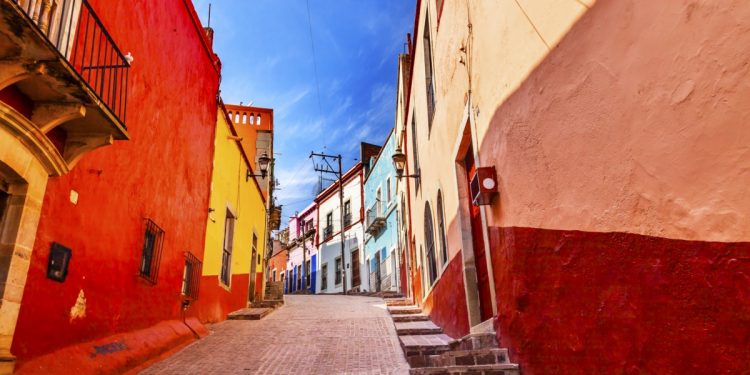The Spanish adjectives that describe people based on their place of origin or residence are called gentilicios—literally ‘gentilic‘ in English, although the word isn’t really used that much by English speakers.
Describing the places people come from
While in English you would simply ask, “what do you call people who come from Mexico?” In Spanish you would ask, “¿cuál es el gentilicio de México?” “Gentilicio de gente de México” or somewhere else would evidently be redundant.
The adjective to describe a person’s country, city, or region of origin will be the place name, often slightly modified, followed by suffixes such as: és, esa; ano, ana; ino, ina; eco, eca; eño, eña; and ense (masculine or feminine).
Some examples for Mexico include:
- Puebla: poblano/a
- Yucatán: yucateco/a
- Morelos: morelense
- León: leonés/esa
- San Luis Potosí: potosino/a
- Jalisco: jalisciense
Often it’s a case of just having to learn the correct term for each place, although as your Spanish improves you may be able to guess correctly because it just “sounds right.” And some differences of opinion will always be possible.
Some places have multiple gentilic names
There is some disagreement whether people from the Mexican state of Nuevo León should be called nuevoleoneses or neoleoneses. Both are acceptable. People from Chihuahua call themselves chihuahuenses, and say chihuahueño should only be used to refer to the breed of small dog (and then there are the canophiles who insist the breed should be called a Chihuahua, not Chihuahueño). Fence-sitting in these cases is advised for the interested outsider.
Irregular adjectives and nicknames
There are a number of irregular adjectives for places in Mexico. People from Monterrey are called regiomontanos, often shortened to regios. People from Guadalajara are usually referred to as tapatíos rather than guadalajarenses and people from Nayarit are more often called nayaritas (ending in “a” whether feminine or masculine) than nayaritenses, although both are correct. People from Aguascalientes are aguascalentenses (drops the “i”) but can also be called, somewhat scientifically, hidrocálidos.
In addition to correct gentilics, there are nicknames for people from certain places. Veracruzanos are known as jarochos, and most notably, Mexico City denizens are called and often reviled as chilangos.
Special case: Mexicano, Mexiquense, Mexiqueño
There is one case where different suffixes are used to differentiate between places with the same name, specifically Mexico. Mexicano/a obviously refers to anyone or anything from Mexico the country. Mexiquense refers to people and things from the State of Mexico, and controversially, mexiqueño has recently been batted about for people from Mexico City, which changed its official name from the ‘Federal District’.
Some grammar notes for gentilics in Spanish
Adjectives, even for people and places, are not capitalized in Spanish.
Gentilicios follow the same rules for masculine and feminine, singular and plural, as other adjectives. Endings in “o” change to “a” for feminine, and add “s” for plural in both cases. Adjectives that end in “e” are the same for masculine and feminine, and add “s” for plural.
Mixed masculine and feminine plurals still take the masculine form, but as noted here, it has become common to precede that with “las y los“.
And gentilicios are interchangeable as adjectives and nouns. El turismo mexicano (adj). Las y los mexicanos (noun). El mexiquense (noun). Toluca es la capital mexiquense (adj).
Final note: India
A discussion that occasionally crops up with Spanish speakers is the correct gentilicio to describe people from India. A person from India is commonly referred to in Latin America as hindú, although our favorite Spanish dictionary gives both indio and hindú as the correct word for people from India.
Hindú, you may be told, refers to the principal religion of that country and not the race. This is sort of confusing things with English, where Hindu refers only to the religion. To confuse matters, hindú in Spanish also refers to people of that religion, and its use to refer to race is likely related to how Persians pronounced what is known as the Indus River and its original inhabitants. This discussion, when kept academic, can make for some excellent Spanish practice.
Annex: Gentilics by Mexican State
This wiki page contains a full list of gentilicios for Mexico by state.
Mexico in your inbox
Our free newsletter about Mexico brings you a monthly round-up of recently published stories and opportunities, as well as gems from our archives.





